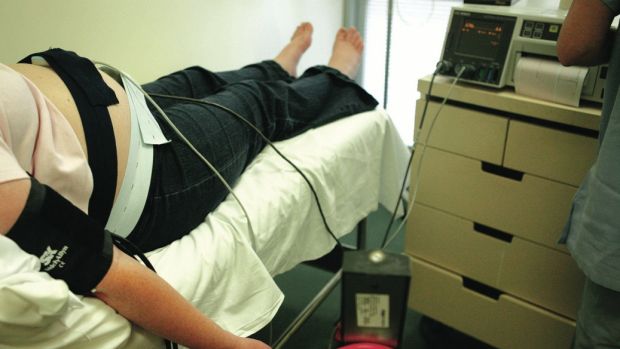
Who would decide which patients were worthy of funding and which weren’t? Photo: Michele Mossop
Imagine for a moment that during a family barbecue this weekend, you suffer a heart attack. I don’t mean to alarm you – turns out it’s a mild one and you will recover. The trouble is you’ve been hitting the bottle hard and carrying too much weight for some years now, and despite the constant exhortations of your GP, you don’t exercise enough and have been known to have the odd sneaky cigarette at times of high stress.
Should your treatment be funded by the public purse?
According to Mark Latham, it’s time to start saying a firm “no” in some of these cases. Appearing on 3AW’s Tom Elliott’s program on Wednesday, the former Labor leader – not often wrapped in nuance’s warm embrace – suggested that the way to rein in health spending would be to punish those who don’t look after themselves. “I think they have to target people who are irresponsible in their health care and they’re the ones who are effectively blowing out the budget,” he said, going on to give the example of broadcaster Derryn Hinch’s liver transplant.
“I just don’t think we should be forking out money in an instance where someone has gone out of their way to damage his own health and then expects the public to subsidise his bad practices. They should have said ‘no Derryn, you pay for that yourself’.”
I suspect that there are many who might instinctively agree with Latham. It raises an interesting ethical argument: should chronic smokers, for example, be funded for their lung-cancer treatment, or the morbidly obese be treated for their Type 2 diabetes and all its ancillary risks?
The most obvious problem with approaching public health funding in this way is the extremely slippery slope on which it operates. Who would decide which patients were worthy of funding and which were not? How would long-term alcoholism compare with, say, the couple who leave having children a little too late and need fertility treatment? Or recklessness on the ski slopes that results in multiple fractures? If we’re going to take a more judgmental approach that relies on individual responsibility, would we fund convicted criminals for their medical problems?
The moral relativism of these questions, and the difficulty of coming up with anything like a reasonable, fair answer, is precisely the reason why this kind of system would never, and should never, work.
No doubt it is a constant source of frustration for doctors, and those responsible for health budgets, that some people are cavalier with their health, complacent in the knowledge that if something does go wrong, there will be high-level, publicly funded health care to treat them. This is entirely reasonable and governments must do all they can to promote prevention rather than cure.
But there is a huge difference between encouraging people to take responsibility for their own health, and punishing them for their inability to do so. At the heart of the latter is a troubling lack of empathy for the reasons people may have poor health in the first place, even if they have contributed to it themselves. There’s little compassion for the person who takes to drink because of a trauma, or the smoker who was hooked as an impressionable 15-year-old and hasn’t been able to unhook since.
At a time when universal health care is under attack and governments must make difficult decisions about how we pay for its skyrocketing costs, there are important questions to be asked about how we look after ourselves and each other, and how we counteract inequality. Health is one of those things that can change for any of us in an instant. Very few of us look after ourselves the way we ideally should: most of us take risks, make mistakes, fall a little in love with our own bad habits.
Of course health funding needs to be approached with rationality and pragmatism, but it also needs to be balanced with compassion and an innate sense of fairness. It should never be contingent on whether patients have made good or bad decisions, or been able to get a grip on their darker selves. It’s the only way for a civilised society to live.
Amanda Dunn is a senior writer at The Age.
Twitter: @amandadunn10
